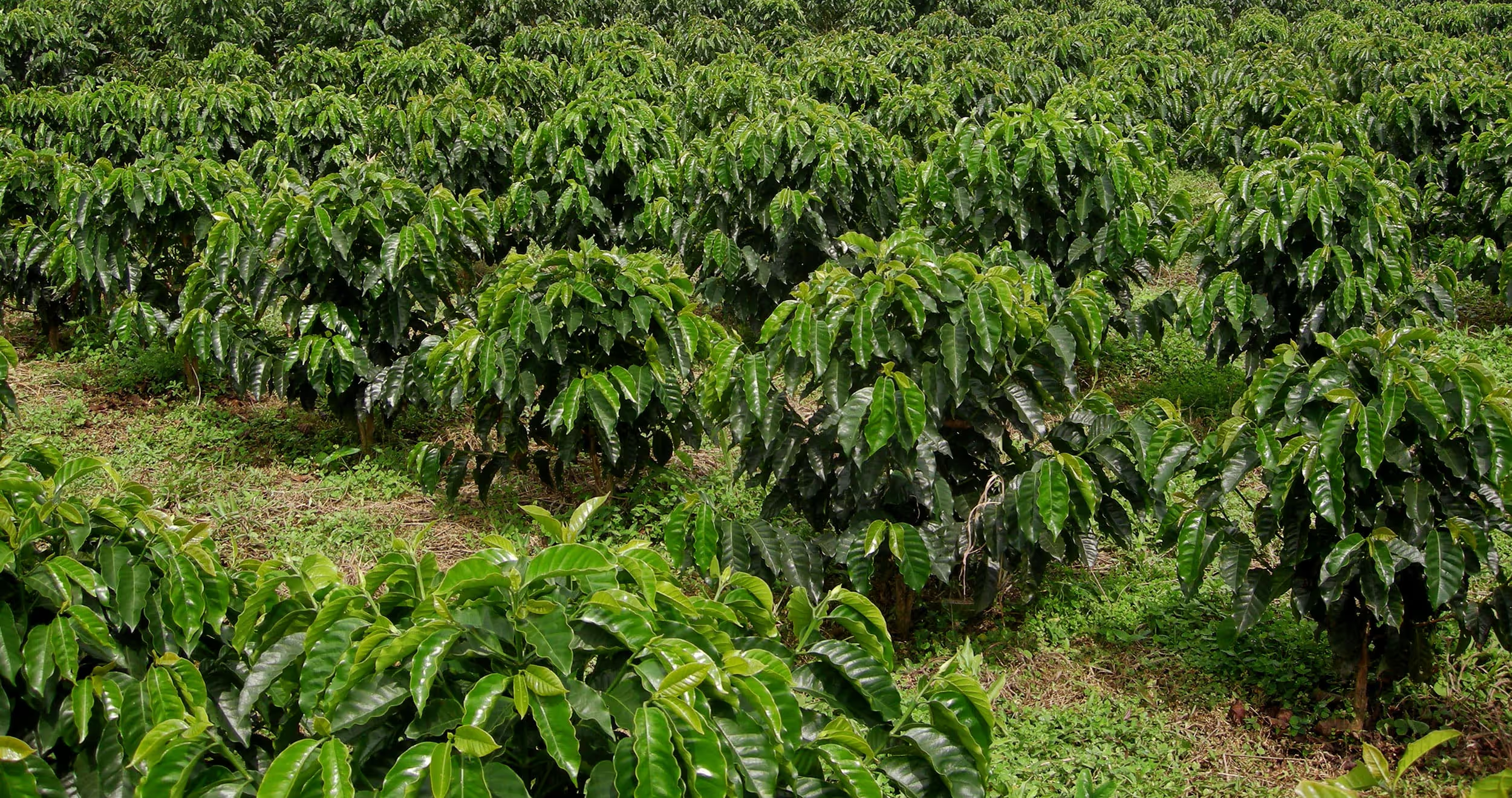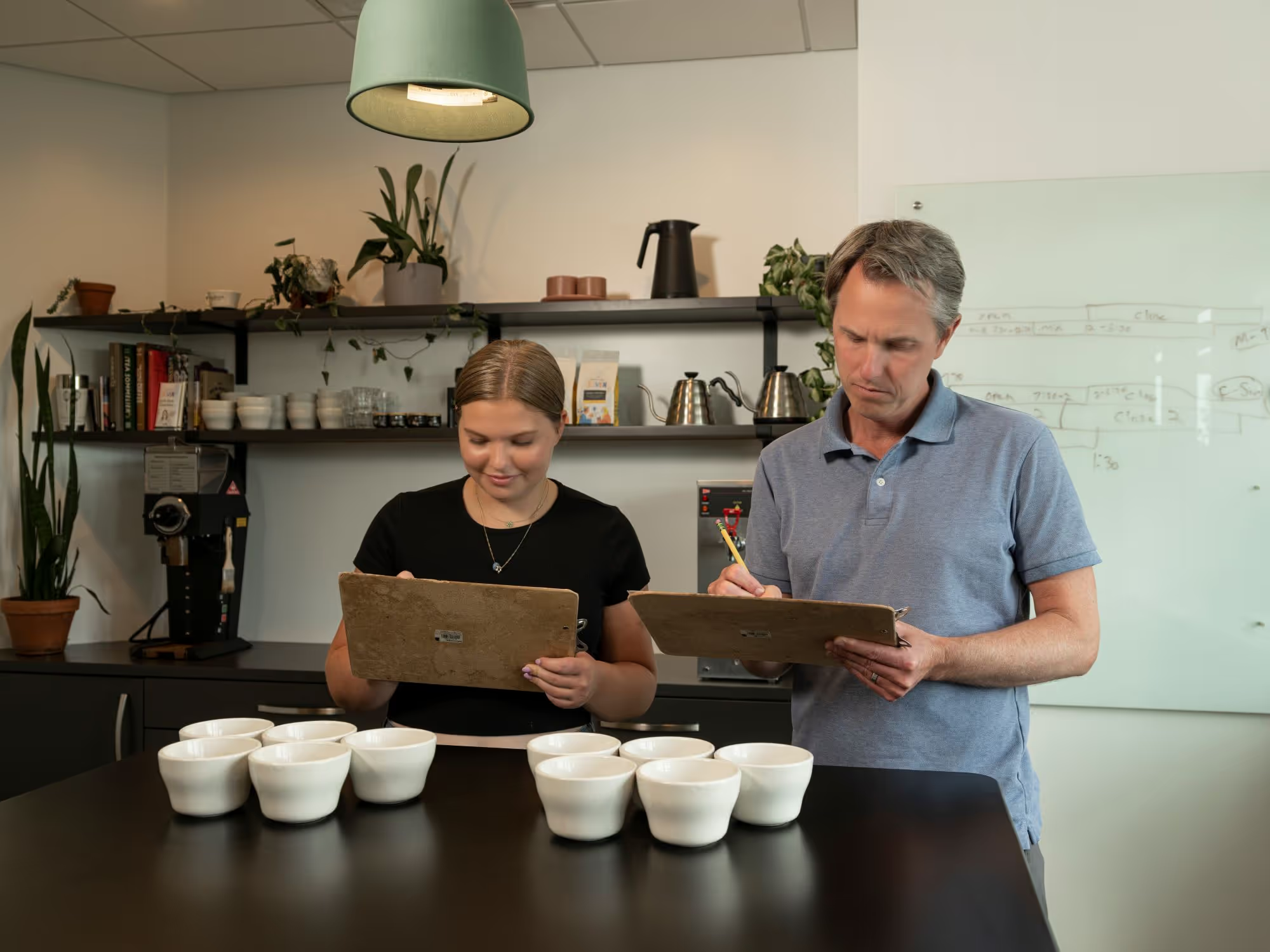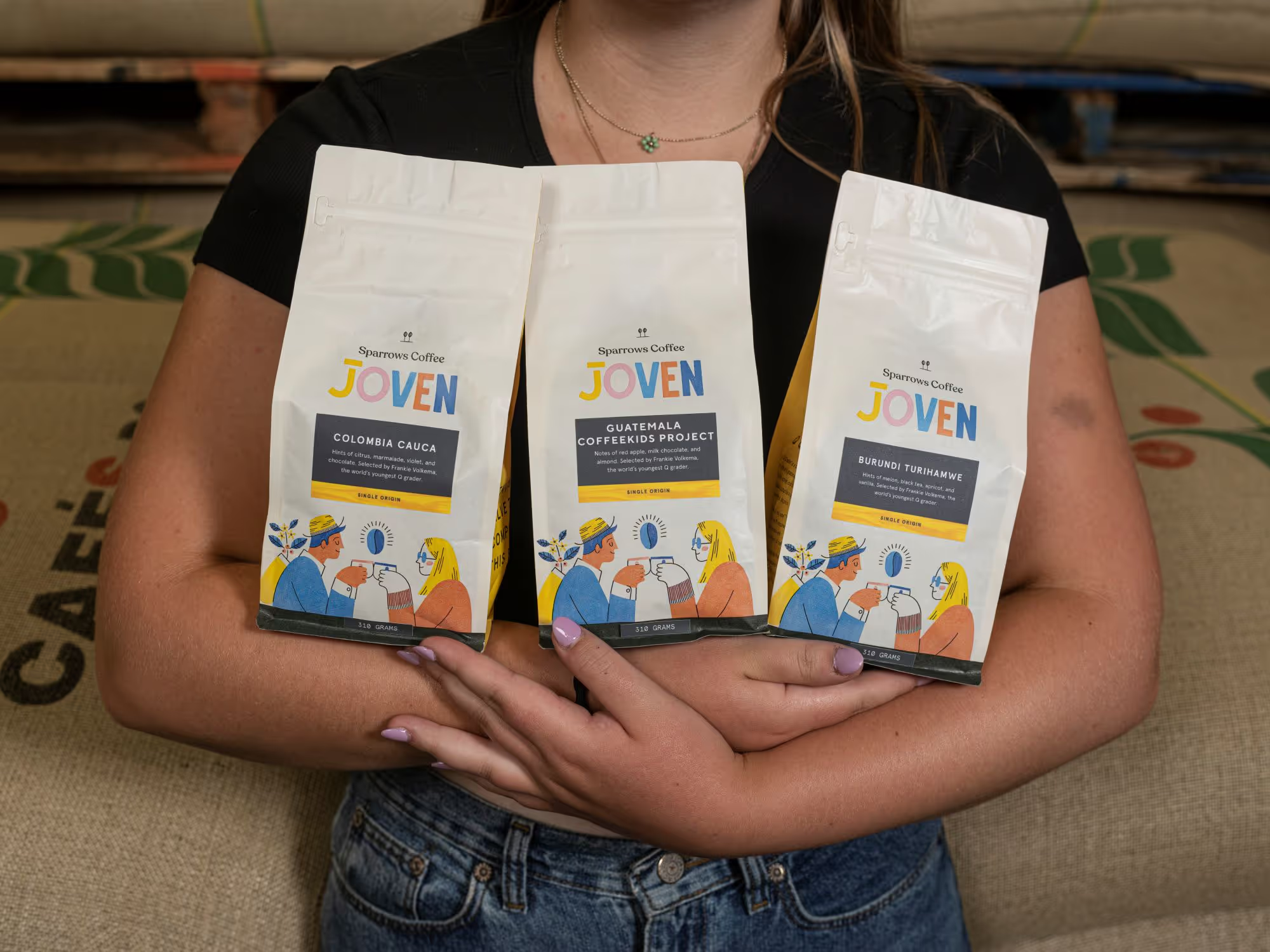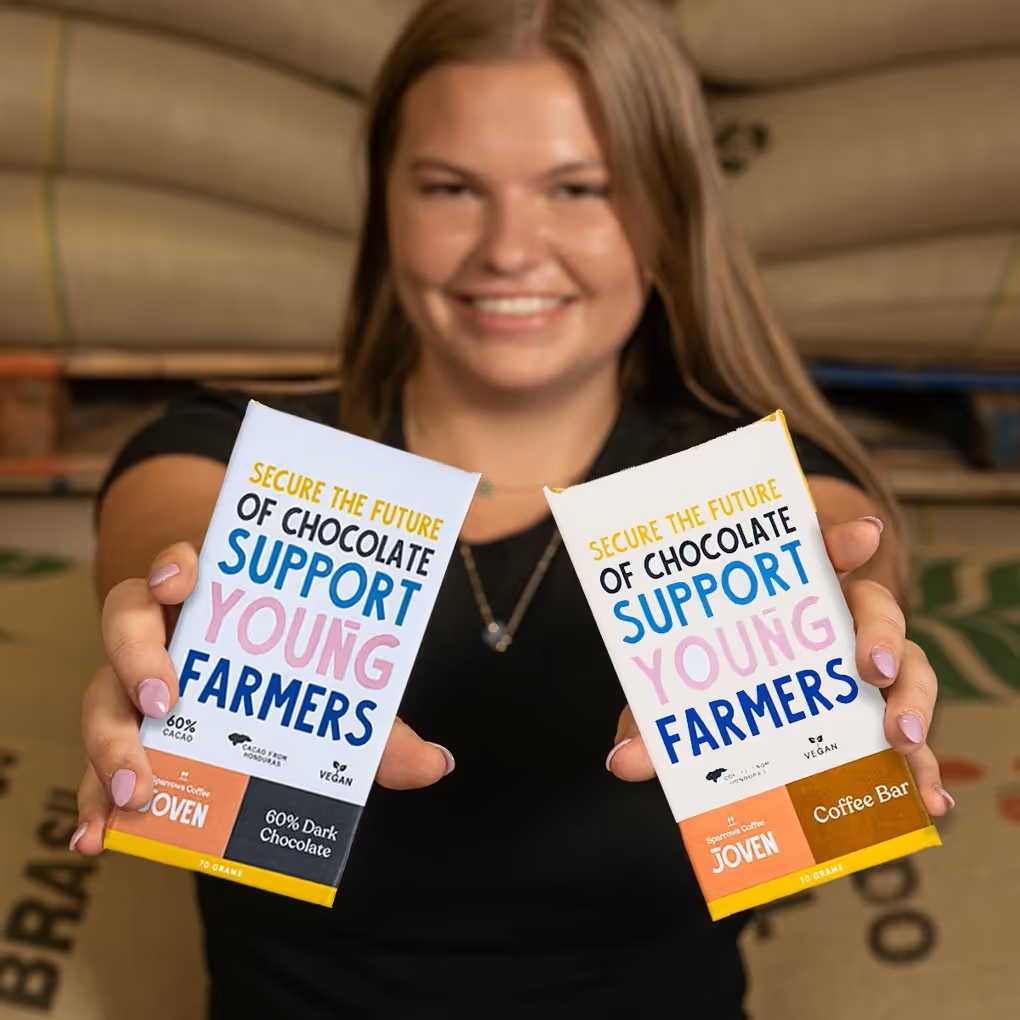
The CQI community is a vast, diverse, and impactful group of individuals – all with a similar goal or interest of improving and identifying coffee quality and the livelihood of those directly involved. This community consists of an internal group (CQI staff, board, and educators), and external individuals (students, certificate holders, partners, producers, and much more). These groups can learn from each other and, through their collective voices, raise awareness on important issues within the coffee industry.

In this community chat we had the opportunity to speak with father and daughter Q Grader duo Tim and Frankie Volkema about their coffee businesses. Frankie (who happened to be the youngest Q Grader at the time of her course in 2019), balances her coffee business with normal teenage responsibilities. Continue reading below to learn more about Frankie (Joven Coffee) and her father Tim (Schuil Coffee Co.).
The Volkemas began this phase of their coffee journey when Tim purchased Schuil Coffee Co. – a specialty coffee importer, roaster and distributor based out of Michigan in 2017, when his daughter Frankie was eleven. He hired a certified Q Arabica Grader as a consultant to assist with green coffee purchases, quality control and other tasks around this new business. Frankie would spend time around the cupping table, intrigued by the different recognizable qualities in coffee and she asked if it would be possible for her to become a Q Grader. She wanted to take the course to learn more about the coffee evaluation process, enjoy the experience, and meet other coffee folks, not necessarily worrying about passing. Frankie saw the importance of the skills acquired throughout the course – since she witnessed Q Graders from different countries interacting with a common language.
After working with the consultant, Tim decided to take the Q Combo course along with Frankie. Although his business had been successful thus far, he felt that the certification would further enrich his understanding of coffee and increase his ability to speak a common language. Both Tim and Frankie successfully earned their Q Grader certifications in 2019.

We asked Tim and Frankie to provide a few tips for anyone considering the Q Combo course and here are their top pointers:
1. Take the course somewhere fun – it is convenient when a course is offered close to home, but if you have the time and resources to travel, it elevates the experience as you are able to explore the coffee scene elsewhere.
2. Go into the course with the mindset of learning and growing, not just passing.
3. Network! – Both Tim and Frankie keep in touch with people from their original Q courses and these relationships can lead to collaboration and much more in the future.
Throughout (and shortly after) the Q course, Frankie grew more and more aware of issues in coffee producing countries – especially how coffee production may not be as attractive to the younger generation as it can be seen as a low-income profession. A trip to Colombia made this even more evident as Frankie realized that many producers did not have a clear line of succession with a willing younger person to follow in their footsteps. She realized that the future of coffee depends on the youth.

Frankie decided that she would use her talents and passion for coffee to raise awareness about the youth in coffee and Joven Coffee was born. Joven Coffee is a specific brand under Sparrows Coffee (also owned by Tim), focused on sourcing, roasting, and selling specialty coffee produced by younger generations. Not only does this initiative raise awareness, but it gives back to the communities from which they purchase these coffees, building relationships and providing an incentive for quality.
Frankie was able to apply her Q Grader certification to her business model – and she has noted it helps them make difficult decisions when it comes to green coffee purchases. Prior to being certified, she would simply say “this coffee is good, I think”. Now she can assign scores, note attributes, and understand the potential behind every coffee.
“The training is so important. Even if you take a break and you come back to cupping you are pretty calibrated, you stay in the zone.” - Frankie Volkema

We had the opportunity to chat with members of Cafinorte in Northern Cauca, Colombia, the cooperative one of the suppliers for the Joven Coffee project. Producers Tatiana Velasco and Santiago Samboni shared that the Joven project has provided them with financial and economic assistance, as they are able to market their brand and provide additional employment to other locals. When asked why they decided to pursue a career in coffee –Velasco noted that her parents raised her and funded her education with the income generated from working in coffee.
Both Velasco and Samboni noted that coffee -
“Es un cultivo que aporta tranquilidad a sus gentes”
– meaning it is a crop that brings tranquility to its people. They see harmony and peace in the production, along with the consumption of coffee. To maintain consistency and specialty quality, the producers at Cafinorte take careful measures to ensure that they are utilizing technology and best practices to adapt to climate changes. Cafinorte, along with the Volkema family – are focusing on the future of coffee, the youth.

When it comes to the future of Joven Coffee, Tim and Frankie would like to source more youth-produced coffees and encourage this trend throughout the industry. As for Frankie, she is still engaged in everyday teenage thoughts– such as figuring out what to study in college, but for now she wants to utilize her social platform, and famous Instagram name “@kidqgrader” to continue bringing awareness to issues in coffee and make a difference in her own way.
To learn more about the Q course - click here.
If you have an interesting story to share about your CQI education and how you have applied it to your business or everyday life – send us an email, info@coffeeinstitute.org.